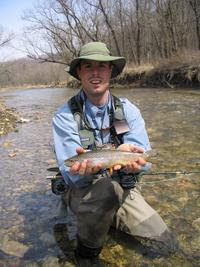Factory Farm Map

This blog includes information concerning existing and planned confined animal feeding operations (CAFOs) or factory farms in St. Croix County. Additionally, it includes a variety of news and information concerning CAFO operations across Wisconsin and the nation and the impacts on the environment, economy and quality of life.









 By Erica Gies
By Erica Gies



 ...Raw milk and livestock siting were topics addressed by speakers during the public appearance segment of the DATCP board meeting.
...Raw milk and livestock siting were topics addressed by speakers during the public appearance segment of the DATCP board meeting. We are witnessing a massive recall of eggs infected with salmonella - eggs produced from factory farms right here in Iowa. I am not surprised.
We are witnessing a massive recall of eggs infected with salmonella - eggs produced from factory farms right here in Iowa. I am not surprised.

 Iowa Citizens for Community Improvement (CCI)members call on DNR to deny construction permit immediately
Iowa Citizens for Community Improvement (CCI)members call on DNR to deny construction permit immediately Immigrant laborers, many of them here illegally, have begun to dominate the work force of the dairy industry and their presence is having a profound effect on some rural communities in Wisconsin.
Immigrant laborers, many of them here illegally, have begun to dominate the work force of the dairy industry and their presence is having a profound effect on some rural communities in Wisconsin.
 Factory farming began in the 1920s soon after the discovery of vitamins A and D; when these vitamins are added to feed, animals no longer require exercise and sunlight for growth. This allowed large numbers of animals to be raised indoors year-round. The greatest problem that was faced in raising these animals indoors was the spread of disease, which was combated in the 1940s with the development of antibiotics. Farmers found they could increase productivity and reduce the operating costs by using mechanization and assembly-line techniques.
Factory farming began in the 1920s soon after the discovery of vitamins A and D; when these vitamins are added to feed, animals no longer require exercise and sunlight for growth. This allowed large numbers of animals to be raised indoors year-round. The greatest problem that was faced in raising these animals indoors was the spread of disease, which was combated in the 1940s with the development of antibiotics. Farmers found they could increase productivity and reduce the operating costs by using mechanization and assembly-line techniques. "You cannot say to yourself, "I can't do anything about this,' because you can. You have power. You have power that you don't even know you have. It's there, you could be using it. If you can become a member of a group that's working for clean elections in your state, I honor you. I bless you. Because my vision is that if enough states pass clean election bills, that a critical mass will form. It will go federal."
"You cannot say to yourself, "I can't do anything about this,' because you can. You have power. You have power that you don't even know you have. It's there, you could be using it. If you can become a member of a group that's working for clean elections in your state, I honor you. I bless you. Because my vision is that if enough states pass clean election bills, that a critical mass will form. It will go federal." John E. Ikert is professor Emeritus of Agricultural Economics in the College of Agriculture, Food and Natural Resources at the University of Missouri-Columbia. He is a powerful advocate fighting against factory farms and agribusiness. His website has links of many useful papers and websites to help you better understand cafos.
John E. Ikert is professor Emeritus of Agricultural Economics in the College of Agriculture, Food and Natural Resources at the University of Missouri-Columbia. He is a powerful advocate fighting against factory farms and agribusiness. His website has links of many useful papers and websites to help you better understand cafos.
 Our modern agribusiness has created great challenges for the honeybee:
Our modern agribusiness has created great challenges for the honeybee:
 "...CAFOs are said to be an efficient cost effective farming system, and they are – if one ignores the cost to the environment, animals living in unnatural conditions, potential for pollution and possible human health concerns. They are necessary only as long as we demand large amounts of grain-fed meat, dairy and eggs. If cheap food is the only priority, they meet the challenge. Most consumers happily hunt for bargains never questioning the production practices that made the bargains, bargains.
"...CAFOs are said to be an efficient cost effective farming system, and they are – if one ignores the cost to the environment, animals living in unnatural conditions, potential for pollution and possible human health concerns. They are necessary only as long as we demand large amounts of grain-fed meat, dairy and eggs. If cheap food is the only priority, they meet the challenge. Most consumers happily hunt for bargains never questioning the production practices that made the bargains, bargains. "True farmers...have minds that are complex and responsible. They understand that their fundamental resource is not acreage and capital, but a home place that is healthful and fertile. They want to conserve their land and improve it. They farm with both plants and animals. They understand and honor their debts to nature. They understand and honor their obligations to neighbors and consumers. They understand and respect the land's need to be protected from washing. They are friends of trees and grass. Their thinking is all about conserving and connecting, husbandry and artistry..."
"True farmers...have minds that are complex and responsible. They understand that their fundamental resource is not acreage and capital, but a home place that is healthful and fertile. They want to conserve their land and improve it. They farm with both plants and animals. They understand and honor their debts to nature. They understand and honor their obligations to neighbors and consumers. They understand and respect the land's need to be protected from washing. They are friends of trees and grass. Their thinking is all about conserving and connecting, husbandry and artistry..."
 “…Agri-industrialists run cotton factories or sugar factories or grain factories or meet factories or milk factories or egg factories. These factories have four outstanding characteristics:
“…Agri-industrialists run cotton factories or sugar factories or grain factories or meet factories or milk factories or egg factories. These factories have four outstanding characteristics:
 My family took a vacation in Iowa. The rolling hills and views were stupendous, the air was toxic. We had to keep car windows rolled up. When I wanted to roll down the windows my kids would beg “No! Please mom!” We tried, but then factory farm buildings would be in the distance, or we would smell factory farm stench without ever seeing them, my kids would scream, “Roll up the windows, hurry, mom!”
My family took a vacation in Iowa. The rolling hills and views were stupendous, the air was toxic. We had to keep car windows rolled up. When I wanted to roll down the windows my kids would beg “No! Please mom!” We tried, but then factory farm buildings would be in the distance, or we would smell factory farm stench without ever seeing them, my kids would scream, “Roll up the windows, hurry, mom!”



 Madison - A proposal to reduce incidents of drinking water being polluted by manure was rejected by legislators because a small group of large agribusiness interests, who complained the rules were too strict, have spent nearly $916,000 on legislative elections since 2000, the Wisconsin Democracy Campaign says.
Madison - A proposal to reduce incidents of drinking water being polluted by manure was rejected by legislators because a small group of large agribusiness interests, who complained the rules were too strict, have spent nearly $916,000 on legislative elections since 2000, the Wisconsin Democracy Campaign says. "An economic development loan from Dane County and the Wisconsin Department of Commerce will help a dairy farm in the Town of Vienna expand, County Executive Kathleen Falk announced today. The $175,000 loan ($87,500 each from Dane County’s Revolving Loan Fund for Economic Development and the State Department of Commerce) will help the White Gold Dairy purchase 350 new cows.
"An economic development loan from Dane County and the Wisconsin Department of Commerce will help a dairy farm in the Town of Vienna expand, County Executive Kathleen Falk announced today. The $175,000 loan ($87,500 each from Dane County’s Revolving Loan Fund for Economic Development and the State Department of Commerce) will help the White Gold Dairy purchase 350 new cows.
 "...Even without a manure spill, factory farm excrement can poison the water. The intensive confinement of thousands to hundreds of thousands of animals results in quantities of manure that often exceed the soil's absorption rate. When the soil is saturated with higher levels of nutrients than can be absorbed, the result is runoff leading to potentially serious ground and water pollution.
"...Even without a manure spill, factory farm excrement can poison the water. The intensive confinement of thousands to hundreds of thousands of animals results in quantities of manure that often exceed the soil's absorption rate. When the soil is saturated with higher levels of nutrients than can be absorbed, the result is runoff leading to potentially serious ground and water pollution. by David Bossman
by David Bossman June 28, 2010
June 28, 2010



